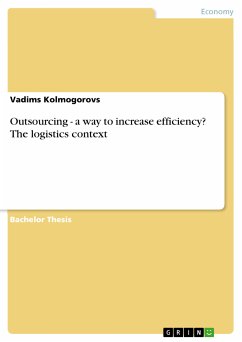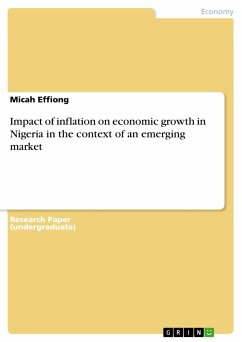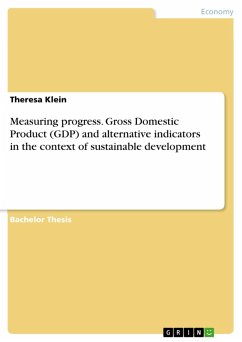Bachelor Thesis from the year 2006 in the subject Business economics - Supply, Production, Logistics, grade: 2, University of Applied Sciences Osnabrück, language: English, abstract: Supply Chain Management (SCM) is a management concept aimed at organising and optimising the complete value chain from sourcing raw materials to the final customer regardless of organisational boundaries. In recent years, the strategy of concentrating on core competencies of companies led to a vertical disintegration of processes along the value chain. Practical experience shows that companies focusing on their core competencies in first turn outsource logistics operations within their supply chain management to external service providers. Outsourcing is defined as “the practice of buying goods and services from outside suppliers, rather than producing them within a firm.” Harvard Business Review(HBR), the popular management journal recently listed outsourcing as one of the most influential concepts coined in the last 75 years. A fundamental question to ask in this work is whether outsourcing is really value enhancing and, in particular, whether the firm that undertakes outsourcing becomes more efficient as a result. In the context of this work the degree of efficiency will be addressed by analysing the input side as labour costs and capital for initial investments. It will be shown that in an attempt to increase efficiency by reducing expenses and turning fixed costs into variable costs, companies pursue restructuring procedures that include outsourcing of non-core activities to specialists having a lower cost base due to better economies of scale and scope. In addition, efficiency may also be improved because adjusting output to variations in demand and maintaining the quality of inputs may be easier via enforcing contracts with outside suppliers than in dealing with a strongly unionized internal workforce.









